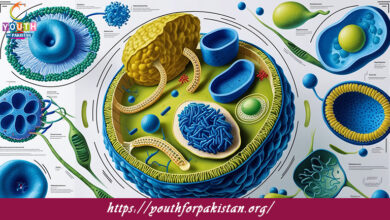Intermolecular Forces MDCAT MCQs with Answers

Welcome to the Intermolecular Forces MDCAT MCQs with Answers. In this post, we have shared Intermolecular Forces Multiple Choice Questions and Answers for PMC MDCAT 2024. Each question in MDCAT Chemistry offers a chance to enhance your knowledge regarding Intermolecular Forces MCQs in this MDCAT Online Test.
Which of the following is the weakest type of intermolecular force?
a) Hydrogen bonding
b) Dipole-dipole interactions
c) London dispersion forces
d) Ionic bonding
Hydrogen bonding is a type of:
a) Covalent bonding
b) Dipole-dipole interaction
c) London dispersion force
d) Ionic bond
Which of the following substances would exhibit hydrogen bonding?
a) CO2
b) HCl
c) CH4
d) NH3
Dipole-dipole forces occur between:
a) Two nonpolar molecules
b) Two ionic compounds
c) Two polar molecules
d) A polar and a nonpolar molecule
London dispersion forces are present in:
a) Only ionic compounds
b) Only polar molecules
c) Only nonpolar molecules
d) All molecules and atoms
Which of the following has the strongest intermolecular forces?
a) Methane (CH4)
b) Water (H2O)
c) Carbon dioxide (CO2)
d) Neon (Ne)
Which type of intermolecular force is responsible for the high boiling point of water?
a) Hydrogen bonding
b) London dispersion forces
c) Dipole-dipole interactions
d) Ionic bonding
The primary force in a nonpolar molecule is:
a) Hydrogen bonding
b) Dipole-dipole interaction
c) London dispersion forces
d) Ionic bonding
Which of the following interactions is the result of temporary dipoles?
a) Hydrogen bonding
b) Ionic interactions
c) London dispersion forces
d) Dipole-dipole interactions
Which type of intermolecular force is strongest in the liquid state?
a) Hydrogen bonding
b) London dispersion forces
c) Dipole-dipole interactions
d) Ionic interactions
In which of the following is dipole-dipole interaction the primary intermolecular force?
a) CH4
b) H2
c) HCl
d) CO2
The boiling point of a substance is primarily influenced by:
a) The size of the molecule
b) The strength of the intermolecular forces
c) The molecular weight
d) The color of the substance
Which type of intermolecular force is present in all molecules?
a) Hydrogen bonding
b) Ionic bonding
c) London dispersion forces
d) Dipole-dipole interactions
Which intermolecular force is present in NaCl?
a) Hydrogen bonding
b) London dispersion forces
c) Dipole-dipole interactions
d) Ionic bonding
Which of the following compounds has the weakest intermolecular forces?
a) Water
b) Ammonia
c) Methane
d) Hydrogen fluoride
Which of the following substances would have the strongest London dispersion forces?
a) H2
b) Ne
c) Ar
d) I2
The strength of London dispersion forces generally increases with:
a) Increasing molecular weight
b) Decreasing molecular weight
c) Increasing polarity
d) Decreasing temperature
Which type of intermolecular force is significant in alcohols?
a) Dipole-dipole interactions
b) Hydrogen bonding
c) London dispersion forces
d) Ionic bonding
Which of the following is a characteristic of dipole-dipole interactions?
a) Occurs between two nonpolar molecules
b) Stronger in nonpolar molecules
c) Occurs between polar molecules
d) Involves temporary dipoles
Which type of intermolecular force is primarily responsible for the solubility of ionic compounds in water?
a) Hydrogen bonding
b) London dispersion forces
c) Dipole-dipole interactions
d) Ionic interactions
Which of the following substances is expected to have the highest boiling point?
a) H2
b) CH4
c) H2O
d) CO2
Which type of intermolecular force is most important in determining the properties of noble gases?
a) Dipole-dipole interactions
b) Hydrogen bonding
c) London dispersion forces
d) Ionic bonding
In which of the following does hydrogen bonding occur?
a) HCl
b) CH4
c) H2O
d) CO2
Which intermolecular force is responsible for the high surface tension of water?
a) London dispersion forces
b) Dipole-dipole interactions
c) Hydrogen bonding
d) Ionic interactions
Which type of intermolecular force is responsible for the attraction between iodine molecules in solid iodine?
a) Hydrogen bonding
b) London dispersion forces
c) Dipole-dipole interactions
d) Ionic bonding
Which of the following substances would have the strongest dipole-dipole interactions?
a) CH4
b) CO2
c) HCl
d) H2S
Which of the following best describes the London dispersion forces?
a) They are permanent interactions between polar molecules
b) They occur between all molecules, including nonpolar ones
c) They result from the interaction between ions
d) They are stronger than hydrogen bonds
Which property is affected by intermolecular forces?
a) Molecular mass
b) Temperature
c) Melting and boiling points
d) Atomic number
The boiling point of a substance is influenced by:
a) The type of intermolecular forces present
b) The color of the substance
c) The solubility of the substance in water
d) The shape of the molecule
Which type of force is primarily responsible for the formation of a meniscus in a polar liquid?
a) London dispersion forces
b) Dipole-dipole interactions
c) Hydrogen bonding
d) Ionic interactions
Which of the following substances is nonpolar and has only London dispersion forces as intermolecular forces?
a) CH4
b) H2O
c) NH3
d) HF
Which of the following is true about hydrogen bonding?
a) It only occurs in nonpolar molecules
b) It is stronger than ionic bonding
c) It is a type of dipole-dipole interaction
d) It involves interactions between metal and non-metal atoms
Which intermolecular force contributes to the high heat of vaporization of water?
a) London dispersion forces
b) Dipole-dipole interactions
c) Hydrogen bonding
d) Ionic interactions
Which type of intermolecular force is responsible for the solubility of polar substances in water?
a) London dispersion forces
b) Dipole-dipole interactions
c) Hydrogen bonding
d) Ionic interactions
Which of the following has the highest boiling point due to intermolecular forces?
a) O2
b) Cl2
c) N2
d) H2O
Which intermolecular force is present in all substances, regardless of their polarity?
a) Hydrogen bonding
b) London dispersion forces
c) Dipole-dipole interactions
d) Ionic bonding
The strength of London dispersion forces increases with:
a) Decreasing molecular size
b) Increasing molecular size
c) Decreasing molecular weight
d) Increasing temperature
Which of the following substances has the weakest intermolecular forces?
a) Water
b) Ammonia
c) Methane
d) Hydrogen fluoride
Which type of intermolecular force is primarily responsible for the solubility of ionic compounds in water?
a) Dipole-dipole interactions
b) London dispersion forces
c) Hydrogen bonding
d) Ionic interactions
Which type of force is most significant in determining the properties of noble gases?
a) Hydrogen bonding
b) London dispersion forces
c) Dipole-dipole interactions
d) Ionic bonding
If you are interested to enhance your knowledge regarding Physics, Chemistry, Computer, and Biology please click on the link of each category, you will be redirected to dedicated website for each category.





